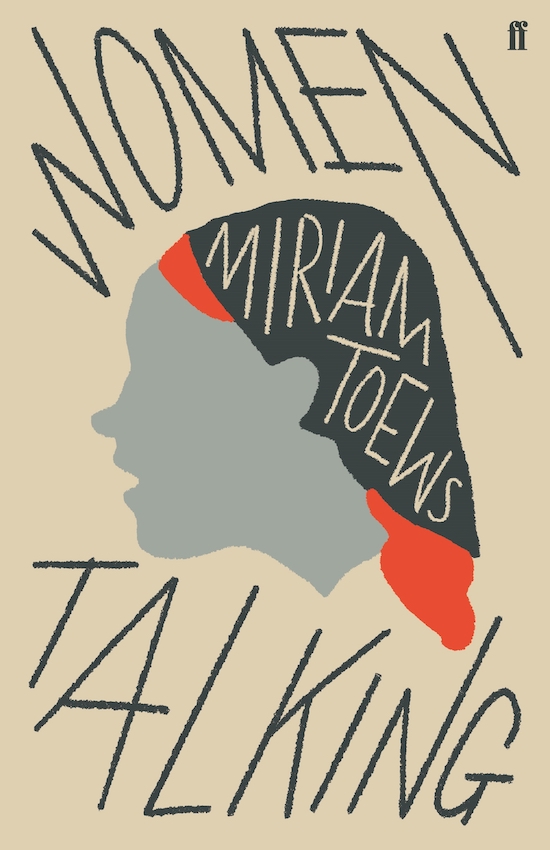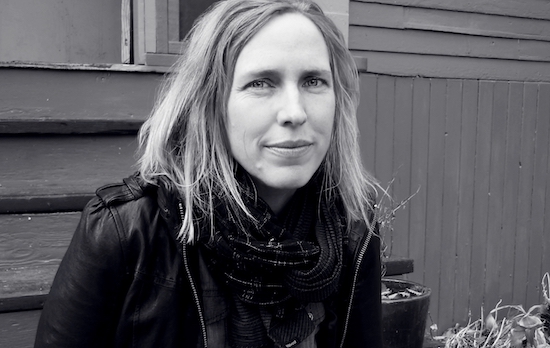Photo: Carol Loewenb
Miriam Toews’s novel Women Talking is inspired by a set of events which took place in Bolivia between 2005 and 2009. It concerns the women of Manitoba/Molotschna, a small Mennonite colony of some 2,000 people, where “hundreds of girls and women would wake up in the morning drowsy and in pain, their bodies bruised and bleeding, having been attacked in the night”, as Toews writes in her introductory note.
The colony bishop tells the women that the injuries are inflicted by Satan, for their sins. Or he changes tack and tells them it’s their “wild female imagination”. It transpires, eventually, that eight men of the colony – close relatives to several of the victims – had been sedating the women with belladonna spray (used as tranquiliser for cattle) and raping them. When one of the victims attacks them with a scythe, the bishop (known as Peters) calls the police to have the men arrested and taken to the city jail, for their own protection. Toews tells us that her novel is “a reaction through fiction to these real events, and an act of female imagination”.
The novel opens here: the women are “bruised and infected and pregnant and terrified and insane”, and “some of us are dead”. Most of the men are away in the city, trying to post bail so the accused can return to await trial, and the women have been left in the colony. Peters wants the women to forgive the attackers so as to guarantee all their places in heaven. In the men’s absence, the women have forty-eight hours in which to vote on what, if anything, they are to do. Their options are:
1. Do Nothing2. Stay and Fight3. LeaveThe women are illiterate, so these are conveyed by means of three small drawings. The narrative conceit consists of notes made by August Epp, a man, amanuensis and fly on the wall, sometime exile from the colony, who is taking minutes of the women’s meetings. He has been invited to do so by the playful Ona Friesen, unmarried and pregnant by one of the rapists, who, though none of the women will be able to read the notes, says she wants there to be a record of the discussion.

The women in attendance are from the Friesen and Loewen families, two groups of four spanning three generations, and the ‘Leave’ option involves setting off into an outside world that they have not been allowed to enter, with no map. (“There are also some women who voted to do nothing, to leave things in the hands of the Lord,” August informs us, “but they will not be in attendance today.” The Do Nothing women, as they are known, have agreed to tend to the chores of the colony, “which are manifold while the men are away, and which if abandoned for as little as one day will lead to mayhem”, so as to allow the Friesens and the Loewens to meet in a hayloft.)
What follows is a radical reinterpretation of the structure of Mennonite, or indeed all, doctrine. The women are pulling apart the parameters of their faith, away from their husbands and the Bible, through sophisticated argument about their station: because they provide food and labour, which will not be needed in heaven, perhaps “Mennonite women will not be allowed into heaven because we now fall into the category of animals”, goes one line; “the only reason why we feel we need to submit to our husbands is because our husbands have told us that the Bible decrees it” goes another. The creation of Eve is deployed in an amusing exchange about Ona being called a whore. “How dare Mariche call Ona a whore”, starts Salome:
“God, in his creation of the world, forced Adam into a deep sleep and while he was sleeping God removed one of his ribs and from that rib he created Eve. Was Adam a whore?
Mariche hollers back, Adam was a man!”
Meanwhile, August is struggling to keep up: “They are talking at once. Still talking at once. Still talking at once” (he is also simultaneously translating from the Plautdietsch, or Low German, which Mennonites speak, to English – and Toews has masterfully achieved the slight stiltedness of a translated text).
At one point they are interrupted by a senile cousin of elderly Agata’s, Earnest, who asks if the women are devils plotting to burn down the barn. “No, Ernie, says Agata, there’s no plot, we’re only women talking” (an exchange which sums up patriarchy’s deep-seated fears surrounding female speech, female conversation, and its perceived dangers to the status quo with remarkable concision!). Agata’s responses to male interjection are always similarly modest: when August offers the definition of a manifesto (“A statement of intent. Sometimes revolutionary.”), Agata replies “it cannot be revolutionary. We are not revolutionaries. We are simple women. We are mothers. Grandmothers”. The radical departure from their life and community may be being made under duress, but it is no less bold. This is a novel about the power of female solidarity and the quiet revolution of reimagining your life. When the women do settle on a course of action, it is because “we will sooner achieve these things required of us by our faith – pacifism, love, and forgiveness. … We will be teaching our children that they must pursue these values above and beyond the expectations of their fathers.” When the ending comes, its twist is so life-affirming that it promises to be the most moving thing I read all year.
Women Talking is a rich and strange creation, an imagined dispatch from the historical spaces which we cannot enter, cannot reach, which went unrecorded and ignored. It is a sort of forged historical document, deeply desired by those who refuse to believe that our foremothers were merely meek and mild. The Molotschnan women wrangling “Menno Simons’ fevered vision” and “Peters’ angry interpretation” become all women, to whom this novel is, in the words of Toews’s acknowledgements, a missive of “love and solidarity”. All stories like it – of female resistance, quiet insurrection, bravery – whether history or fiction, are to us what facts are to the colony members: “gifts, samizdat, currency, they are the Eucharist, blood, forbidden”. With each offering of precedent, we are emboldened in our aims, and in our acts of imagination.
Women Talking by Mirian Toews is published by Faber


